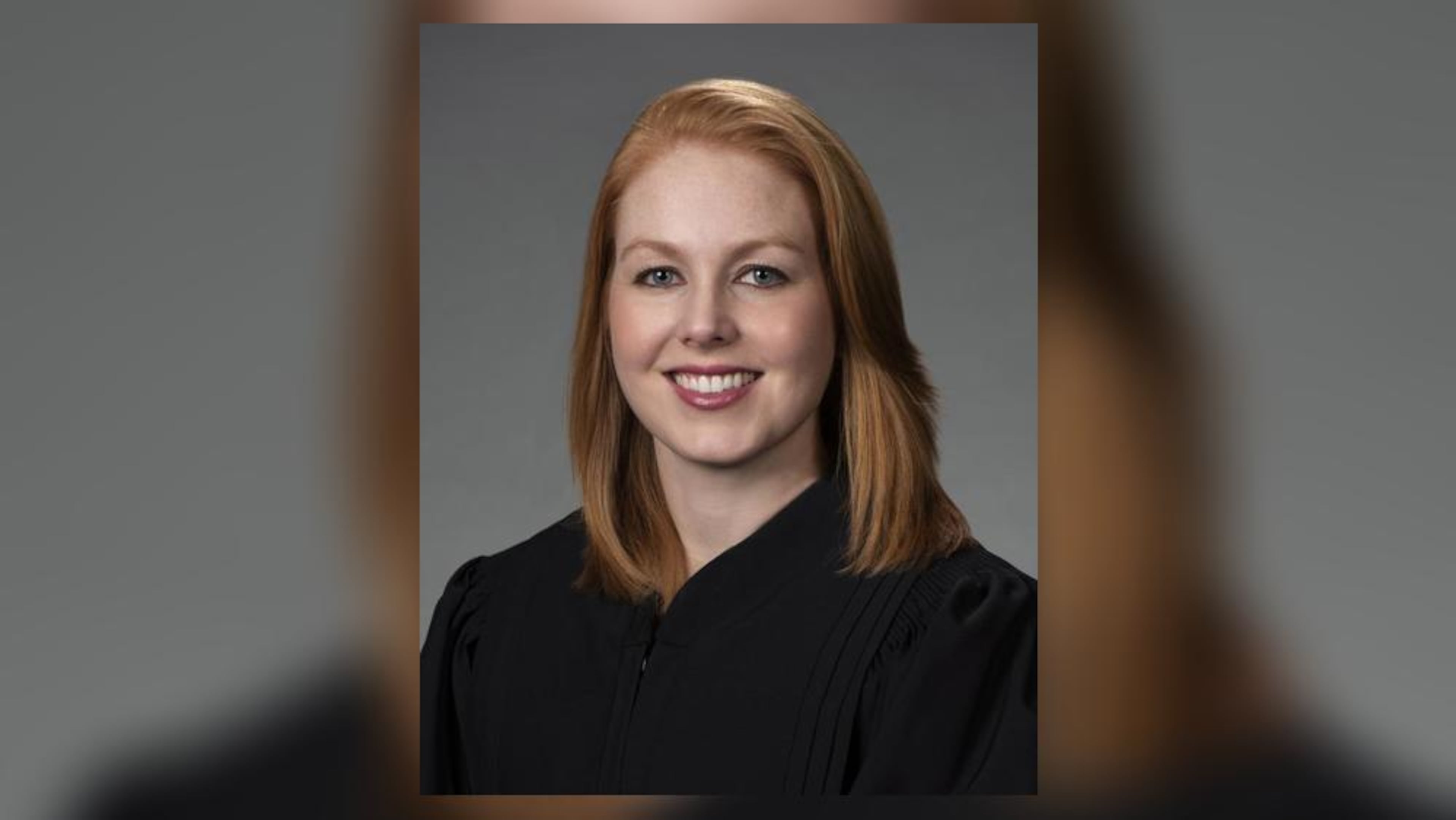Two Georgia Supreme Court justices face election competition

State Supreme Court justices rarely face opposition, and there’s a good reason why: No sitting justice in the history of the 175-year-old court has ever been defeated when running for election.
This year, Justices Charles Bethel and Sarah Warren are facing opposition and trying to keep that streak intact. They are running election campaigns during a pandemic and also while litigation has been swirling over the seat of their colleague, Justice Keith Blackwell, who is stepping down from the bench in November.
Last week, in a 6-2 ruling, the state Supreme Court rejected two lawsuits that contended an election should be held for Blackwell's seat. The court said Gov. Brian Kemp can fill it by appointment. Three Georgia voters also filed a federal suit, but a judge on Monday denied their request for an injunction to force an election.
Beth Beskin, a former state legislator, had tried to qualify to fill the vacancy for Blackwell's seat. But after losing litigation battles to make that happen, she qualified to run against Bethel. Her lawsuit and another filed by former U.S. Rep. John Barrow were the two dismissed last week by the state high court.
In both races, the two incumbents have enormous fund-raising advantages over their challengers. Bethel has raised $744,075, which included a $166,249 personal loan. Beskin has raised $248,306.
Bethel has also received bipartisan endorsements from numerous current and former state and local leaders. These include Gov. Brian Kemp, Lt. Gov. Geoff Duncan; former governors Nathan Deal and Roy Barnes; former attorneys general Mike Bowers and Sam Olens; DeKalb County CEO Michael Thurmond; 40 state legislators and 17 district attorneys.
“I’ve been overwhelmed by the support I’ve received,” Bethel said. “I have always tried to treat people well.”

Bethel, from Dalton, where he served as a city alderman, was a member of the Court of Appeals when Deal appointed him to the Supreme Court in 2018. Before that, he was elected as a Republican to four terms in the state Senate and served as an administrative floor leader. He previously worked as in-house counsel to a flooring company in Dalton.
“I think the experience I bring to the court helps the court do its job better,” Bethel said. “My job is to faithfully apply the law. My own personal preferences, my own beliefs and my own opinions have no proper role in the decision of a case. My job is to see that the will of the people as set out in their Constitution and code is applied without favor to all who come before the court.”
Last year, Beskin began campaigning for Justice Robert Benham's seat when he said he would not run for reelection. But instead of serving out his term, Benham retired in March, allowing the governor to appoint his successor. Beskin then tried unsuccessfully to qualify for Blackwell's seat and, on her third try, decided to challenge Bethel.
“I want to be the first person to unseat an incumbent,” Beskin said. “I think the depth and breadth of my experience makes me the best candidate, and that’s why I’m running.”

Beskin, of Atlanta, served two terms as a Republican in the state House, including a stint as chief deputy whip. She was defeated in her 2018 reelection bid by Rep. Betsy Holland, a Democrat.
A lawyer for 30 years, Beskin is now a partner at the Atlanta firm Freeman, Mathis & Gary. Before that, she served as an assistant attorney general in the Medicaid Fraud Division.
In the other race, Justice Sarah Warren had the good fortune to be out on the campaign trail most of last year, long before the coronavirus pandemic hit. Another Deal appointee in 2018, Warren formed her campaign committee in February 2019 and began talking to groups across the state.

“This is my first election, so I knew I had to take it seriously and give it everything I had,” she said. “I love my job. It’s incredibly hard, but very gratifying. I want to keep it for a long time.”
So far, she has raised more than $741,000 and recently picked up bipartisan endorsements from Deal, Barnes and former U.S. Sen. Johnny Isakson.
After graduating magna cum laude from Duke University, Warren worked in President George W. Bush's administration as deputy press secretary for the Office of Management and Budget. After obtaining her Duke law degree with honors, she worked for a law firm in Washington before returning home to Georgia. In January 2017, she was named solicitor general, becoming the state's chief appellate lawyer and adviser to Attorney General Chris Carr.
“I pour myself into this job on the court and I give respect to all parties,” she said. “I work hard to get the right answer under the law. I’ve shown I’m up to the task.”

Her election challenger Hal Moroz is Dougherty County's deputy chief assistant district attorney and previously served as a judge for Camden County's Magistrate Court and St. Marys' municipal court. A 21-year veteran of the U.S. Army, Moroz started a charity, Veterans Law Center, that provides counsel and support for military vets.
“The biggest thing that differentiates me from my opponent is experience in life and the law,” Moroz said. “And I intend to be representative of the military and their families on the court.”
Moroz said he will champion people’s rights and freedoms. “When people are being arrested for going to work and inmates with felonies are being released from jails, there’s a problem in America,” he said, referring to actions taken during the pandemic. “It’s an abuse of discretion.”
Moroz has funded his campaign, contributing $6,618, most of which paid his $5,373 filing fee.



